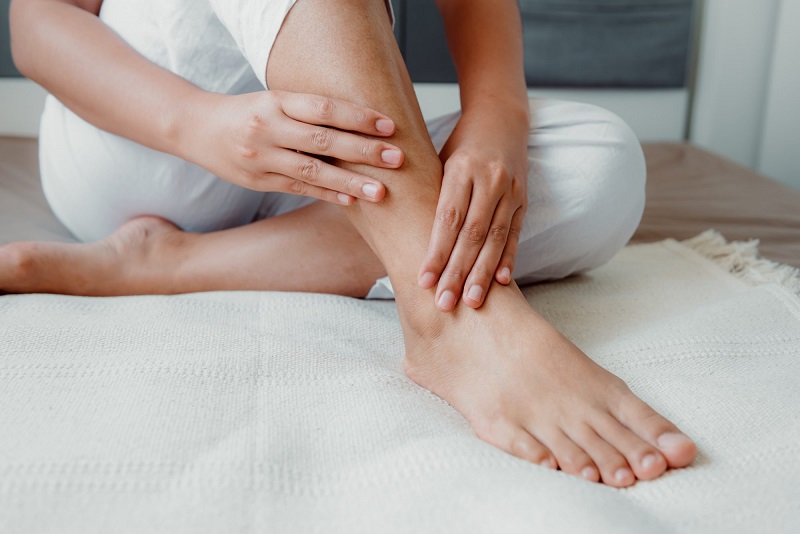
21 Mar How to avoid having swollen legs
Fluid retention, poor circulation, or high temperatures make us suffer from swollen legs. It is a very unpleasant and even painful sensation that affects us in our daily lives. The swelling of areas such as the legs, and even the feet and ankles, is called peripheral edema and is basically the increase in volume caused by the accumulation of water in muscles and tissues. It usually occurs after a long time of sitting or standing.
In summer and with the heat the swelling worsens and more circulatory problems and varicose veins appear. With heat, the blood vessels dilate and the elasticity of the walls, which is essential for pumping blood from the extremities to the heart, decreases. Keeping your legs elevated can alleviate this swelling and the discomfort it causes.
We tell you what the main causes of swollen legs are so that you can detect the problem right away. As well as remedies for swollen legs, both natural and cosmetic products that you can find in a pharmacy and even an online pharmacy to relieve swollen and red legs.
Swollen legs: main causes
Tiredness, tingling and even pain are the symptoms of this condition that affects many women.
- Wearing footwear that is not suitable and that tightens the feet too much can cause swelling in this part of the body and in the legs in general.
- The varices cause swelling, as are dilated veins that do not provide for the return of blood to the heart.
- The edemas cause swelling due to the accumulation of fluid in the tissues, especially in the feet, ankles, and legs.
- Standing or sitting for a long time makes your legs swell. It is advisable to move often, exercise to promote circulation.
- Not practicing sports makes your legs swollen since exercise promotes blood circulation and prevents fluid retention.
- Retaining fluids the days before menstruation is common and causes feet and ankles to swell.
- The abuse of salt causes fluid retention and this causes the legs to swell.
- Being overweight affects both blood circulation and fluid retention.
- The pregnancy also causes the leg to swell.
- Certain health problems such as a malfunction of the kidneys, osteoarthritis, intestines with toxins, or clogged lymph nodes can be the cause of leg swelling. Check with your doctor.
- The birth control pills, antidepressants, or pills stress can lead to swollen legs.
Remedies for swollen legs
The first thing to do is to monitor the diet since it fulfills the function of accumulating or purifying toxins. If we have swollen legs it is because our tissues are damaged and that causes us to accumulate fluids. Therefore, there are several things that you must eliminate or reduce from your diet if you want to avoid bloating.
- Do not abuse salt or sugar.
- Cut down on vinegar and mustard.
- Products with refined flours and fried ones are also not recommended.
- The cow’s milk and its derivatives should also be avoided.
- Nor is advisable red meat.
- Drink lots of water, at least two liters a day.
- Substitute soft drinks for herbal teas, fruit juices, or green tea.
Foods that have draining properties help prevent swollen legs. Some of them are onion, parsley, green tea, celery, asparagus, artichokes, cauliflower, lettuce, oranges, kiwis, pineapple, banana, pear, apples, melon, or watermelon.
Drink water with the juice of a lemon squeezed in the morning on an empty stomach.
Tips to avoid swollen legs
Apart from the food you eat, there are some recommendations to avoid having swollen legs:
- Elevate your legs when you get home by positioning them above your heart. You can also sleep with your feet propped up on cushions to keep them up. This favors a correct circulation.
- When you spend the day working sitting down, it is advisable to get up every hour and start walking for about 3 or 4 minutes.
- The tight clothes and the shoes too tight should be discarded.
- Exercising is essential to avoid fluid retention. Try to walk at least half an hour a day or play sports like yoga or Pilates, or ride a bike. Swimming allows water to exert pressure and this favors the expulsion of water through the urine.
- Showering with cold water or applying it only to the legs activates blood circulation.
- It is necessary to sleep at least 7 hours. The perfect amount is 8 hours.


No Comments